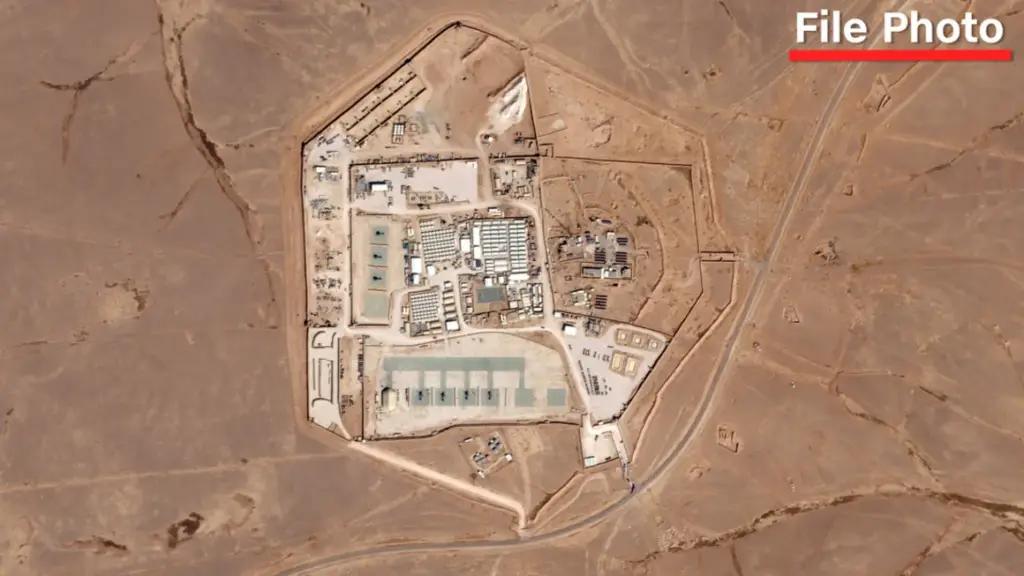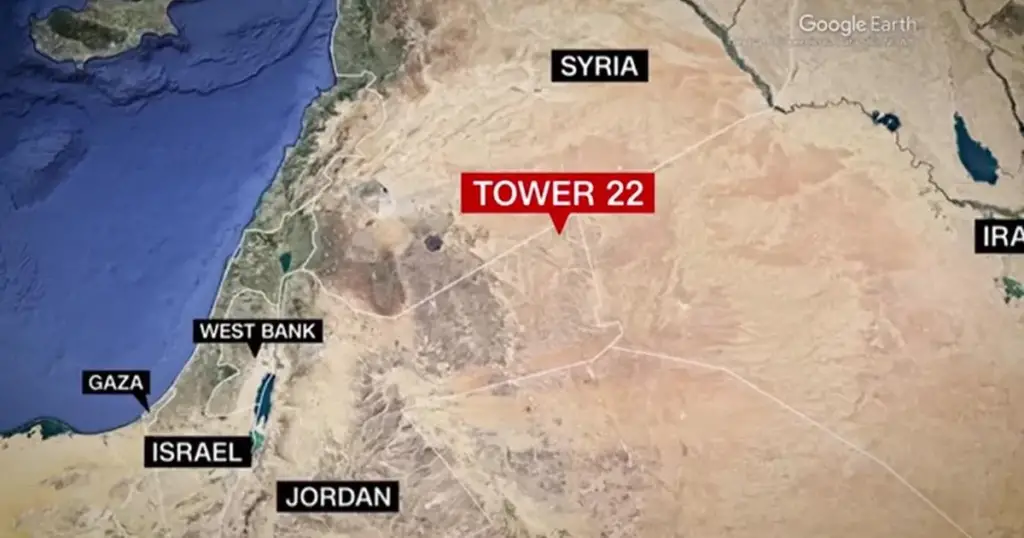Related Posts
An enemy drone attacked a desert base in Jordan, Tower 22, resulting in the tragic death of three U.S. Army Reserve soldiers and injuring dozens. The U.S. forces may have mistaken the drone for an American one returning to the outpost, causing a delay in counteraction and enabling the enemy drone to strike the base without any challenge.
The Attack and its Aftermath
As the enemy drone approached the outpost, a U.S. drone was returning to the base simultaneously. This led to confusion and a delay in response, allowing the enemy drone to strike the base unchallenged. The primary damage was dealt to one of the trailers housing sleeping troops, while adjacent trailers suffered minor damage from the ensuing blast and debris.
Sgt. William Jerome Rivers, Spc. Kennedy Ladon Sanders, and Spc. Breonna Alexsondria Moffett were the soldiers who tragically lost their lives in the attack. All three were of the 718th Engineer Company, 926th Engineer Battalion, and 926th Engineer Brigade in Fort Moore, Georgia. In addition to the fatalities, more than 40 other troops sustained injuries, ranging from minor cuts and bruises to traumatic brain injuries. Eight personnel were medically evacuated for further treatment, including three transported to Landstuhl Regional Medical Center in Germany.
The incident has raised critical questions about security protocols and procedures at military outposts. The Pentagon is assessing whether the failure to intercept the enemy drone was human error. Despite the base’s lack of extensive air defense systems, it has counter-drone systems like the Coyote drone interceptors, which should have been able to intercept such a threat.
The Political Landscape: Balancing Retaliation and Diplomacy

The Biden administration, while attributing the attack to Iranian-based proxies, has been clear in its intention to avoid escalating the situation into an all-out war with Iran. In consultation with his national security team, President Joe Biden is currently deliberating on appropriate retaliatory measures that would hold the responsible parties accountable without further escalating regional tensions.
Defense Secretary Lloyd Austin has expressed his outrage and sorrow over the attack, reiterating the administration’s commitment to take all necessary actions to defend U.S. forces.
“The President and I will not tolerate attacks on U.S. forces, and we will take all necessary actions to defend the U.S. and our troops,” Austin said.
International Reactions and Next Steps
Despite the U.S. blaming Iranian-based proxies for the attack, Iran has categorically denied any involvement. Meanwhile, the U.S. continues its investigation to identify the specific militant group responsible for the strike. Notably, Iran has a long history of supporting such militant groups across the region.
In the political arena, the incident has led to Republicans, including presidential front-runner Donald Trump, criticizing the Biden administration for perceived weakness in dealing with Iranian militias. This attack, seen by many as a tragic consequence of perceived weakness, has intensified calls for a more decisive response against those responsible.
The attack occurred at a critical time, as ongoing negotiations to broker a deal between Israel and Hamas for the release of hostages held in Gaza are in progress. This incident further complicates an already tense situation in the Middle East and underscores the urgency of diplomatic efforts to prevent further escalation.

